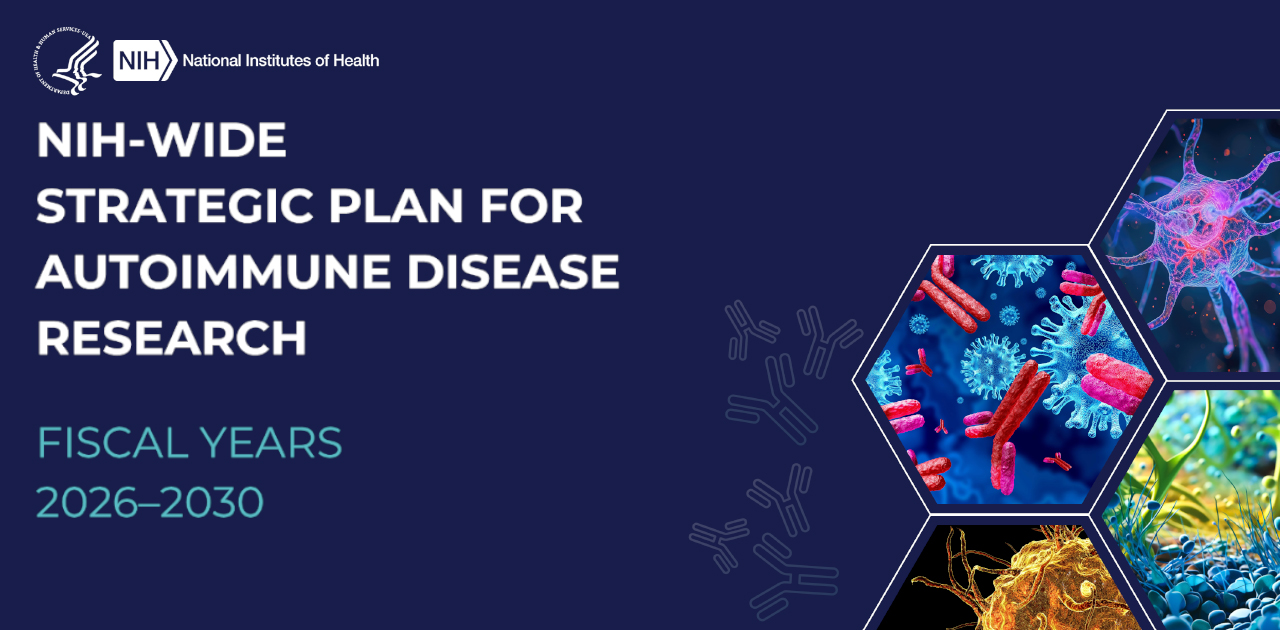The National Institutes of Health (NIH) has released its first-ever NIH-Wide Strategic Plan for Autoimmune Disease Research, charting an ambitious course for Fiscal Years 2026–2030 to accelerate discovery and improve outcomes for the millions of Americans living with autoimmune diseases.
A Growing Public Health Challenge
The more than 140 currently identified autoimmune diseases can affect almost every organ system in the body and are among the most common chronic diseases in the United States, impacting an estimated 23.5 to 50 million Americans. While autoimmune diseases more commonly affect women, men often experience a more severe disease course and face a higher risk of mortality. Additionally, 25% of patients live with two or more co-occurring autoimmune diseases. These conditions bring substantial physical, mental, and financial burdens, with annual healthcare costs exceeding $100 billion.
Despite remarkable advances in basic and clinical research, many autoimmune diseases remain difficult to diagnose and treat. Half of patients experience significant delays in diagnosis, and most autoimmune diseases lack curative interventions. The prevalence of autoimmunity continues to rise, driven by complex genetic, environmental, and societal factors. This growing incidence underscores the urgent need for coordinated research efforts.
A Unified NIH Approach
Recognizing the broad impact and complexity of autoimmune diseases, the new Strategic Plan for Autoimmune Disease Research represents an unprecedented, NIH-wide commitment to research in this field. This Plan was developed by the Coordinating Committee for Autoimmune Disease Research (CCADR) in conjunction with the Office of Autoimmune Disease Research (OADR) in the Office of Research on Women’s Health (ORWH) with input from representatives across NIH institutes, centers, and offices. Extensive input was collected and incorporated into the Plan from stakeholders across NIH, academia, and patient communities. The plan establishes a unified framework to coordinate and advance efforts to support rigorous, high-priority, innovative, and collaborative autoimmune disease research.
Strategic Priorities and Crosscutting Themes
The Plan outlines five strategic priorities:
- Accelerate Scientific Discovery: Support fundamental research on autoimmunity mechanisms, disease pathogenesis, and flares, and improve research models and risk prediction across the lifespan.
- Promote Research Focused on Enhancing Health: support research on preclinical autoimmunity, and foster development of timely diagnostics, improved treatments, and better implementation science to enhance outcomes for those living with or at risk of autoimmune diseases.
- Understand Disease Complexity: Advance cohort studies, population research, and clinical trials to illuminate shared pathways and differences in co-occurring and comorbid conditions, disease manifestations, and outcomes across the lifespan.
- Build Research Capacity: Strengthen infrastructure, clinical trial networks, data science, and workforce development to support high-priority research and translation of discoveries to the clinic.
- Strengthen Partnerships and Collaboration: Enhance engagement with people living with autoimmune diseases, advocacy groups, communities, and public–private partners to drive innovation.
These priorities are supported by crosscutting themes emphasizing technology development, translational infrastructure, multimodal data-driven approaches, broad population engagement, and community partnerships.
Implementation and Vision
The NIH-Wide Strategic Plan for Autoimmune Disease Research will serve as a blueprint for priority setting, collaboration, and resource allocation across NIH over the next five years. The plan places the voices and needs of people living with autoimmune diseases at its center, aiming to catalyze transformative advances in prevention, diagnosis, treatment, and, ultimately, cures. OADR-ORWH will monitor progress, foster new research initiatives, and convene stakeholders to ensure sustained momentum.
“Through a collaborative approach, innovative thinking, and a steadfast focus on outcomes that impact human health, we are poised to make significant strides in the fight against autoimmune diseases,” said Dr. Jay Bhattacharya, Director of NIH, in the plan’s foreword. “It is our hope that this plan will serve as a catalyst for transformative change, ultimately improving the lives of all people living with and at risk of autoimmune diseases.”

